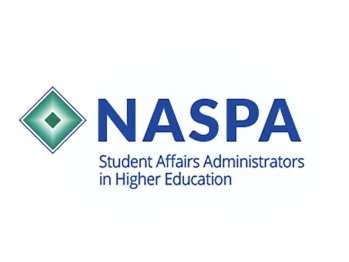NASPA Assessment, Planning, and Data Analytics Conference
Division/Group Events Assessment, Evaluation, and Research
June 27 - June 30, 2025 Denver, CO
Presented By

About
The NASPA Assessment, Planning, and Data Analytics Conference convenes scholars and practitioners to promote student learning and success by strengthening assessment, improving educational quality, and developing intentional persistence programming.
Institutional leadership must create an environment which builds capacity, as well as encourage an organizational culture that includes comprehensive assessment as part of strategic planning. Similarly, institutional leaders have a unique role to play in providing an environment and education that encourages student persistence, especially for under-served, low-income, adult, part-time, and minority students.
The NASPA Assessment, Planning, and Data Analytics Conference is designed to address these important issues in assessment and persistence, as well as to provide a forum for experienced professionals to advance their skills by discussing assessment and persistence with practitioners and policy-makers.
For more information on the 2025 NASPA Conferences on Student Success in Higher Education, please visit this website. If you are interested in learning more about the Assessment, Evaluation, and Research Knowledge Community, please click here.
Learning Outcomes and Themes
Innovation-Driven Student Success
-
Participants will identify and apply innovative technologies, such as AI and predictive analytics, to improve student outcomes and institutional efficiency.
-
Attendees will develop strategies for implementing real-time assessment tools that enable immediate feedback and adaptive interventions for students.
-
Learners will evaluate case studies showcasing data-driven initiatives that enhance institutional decision-making and improve student success at scale.
Equity-Centered Assessment
-
Participants will analyze disaggregated data to identify systemic inequities and develop targeted, equity-centered interventions.
-
Attendees will integrate qualitative and quantitative insights to create comprehensive approaches to equity in assessment and planning.
-
Learners will design frameworks utilizing holistic metrics to promote a sense of belonging and well-being among diverse student populations.
Strategic Data for Institutional Impact
-
Participants will align assessment efforts with institutional strategic goals to foster cohesive, impactful initiatives that support student and institutional success.
-
Attendees will explore methods to strengthen collaboration between Institutional Research and Student Affairs, ensuring integrated data strategies across the institution.
-
Learners will apply longitudinal data analysis to design sustainable, evidence-based practices that drive continuous institutional improvement.